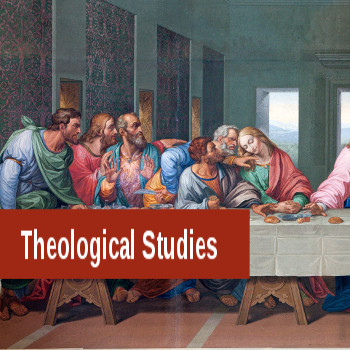
CLICK "LOG IN AS GUEST" BUTTON TO ACCESS THE WELCOME CENTER
Having a biblical framework upon which to build a life of service in the mission of God is what the School of Theological Studies provides. Here you can study the mission of God in salvation history, God at work among his creation from the beginning of time until now and into the future, applied Christianity to public and social ethics, how the gospel speaks into different cultural contexts, and creation care in the mission of God from a biblical and theological perspective. You may have questions or just want to have a face-to-face conversation about the courses and programs in the theological studies. Our Interim Dean, Dr. Kerry McRoberts along with the staff and faculty of the school are available to address your questions. Just email Dr. McRoberts' office to schedule an appointment today at kmcroberts@missional.university.
- C-D-Level: Ellen Farrar
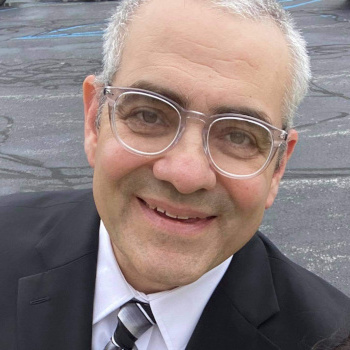
The Christian worker of the 21st century must be able to correctly handle the word of God and faithfully apply it to their cultural context. At Missional University’s School of Theological Studies we are committed to laying the Biblical, theological, and missional foundation for ministry skills in a rapidly changing world. There is no better place for you to engage in the skills and disciplines of critical thinking and engagement of Bible, missions, culture, society, and personal character formation.
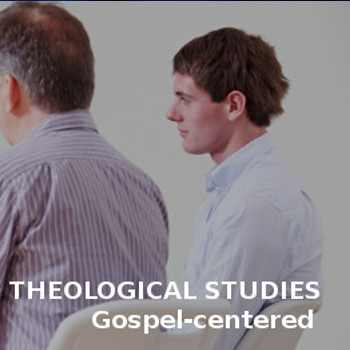
Shared governance is a collegial ethos and inclusive process that allows all constituencies of our community to participate meaningfully in the University’s strategic and operational decisions. The operant assumption of shared governance is that each of these constituencies—faculty, administration, staff, students, trustees and alumni—bring unique and valuable perspectives to the deliberative decision process. Shared governance signals our institutional commitment to create and follow policies and procedures that facilitate inclusive decision-making. Successful shared governance ensures that University constituencies have voice in, and influence on, the decisions that affect them.
Missional University Faculty Handbook
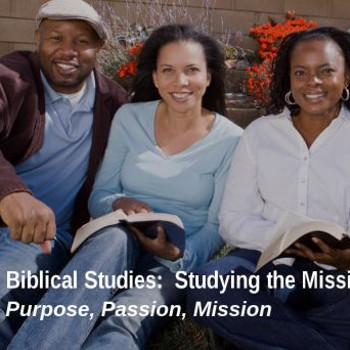
The Department of Biblical Studies in the School of Theological Studies is built on the understanding that the Bible is the story of the redemptive mission of God. Studies of the missio dei as expressed in the Old Testament, the Gospels, and the New Testament epistles provide the theological foundation for graduates preparing to be on mission in any area of service.
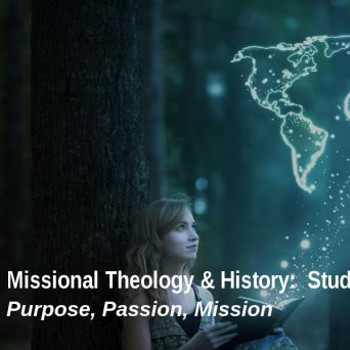
The Department of Missional Theology & History in the School of Theological Studies builds on the foundation of biblical studies and stands on the shoulders of the saints who have preceded us. Studies in the theological unfolding of the missio dei and of the historical endeavors and movements to fulfill that mission will give graduates intellectual, spiritual, and personal confidence as they, too, fulfill their part in the redemptive mission of God.
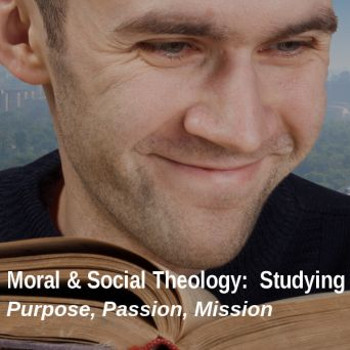
The Department of Moral & Social Theology in the School of Theological Studies builds on the foundation of biblical studies so that the fulfillment of the missio dei is always consciously tied to the practice of a biblically grounded personal and social ethic. The current global situation demands that every missional graduate be fully aware of relativistic and pluralistic worldviews and of issues of personal and social injustice, and be equipped to engage those confident of both ethical ends and means.
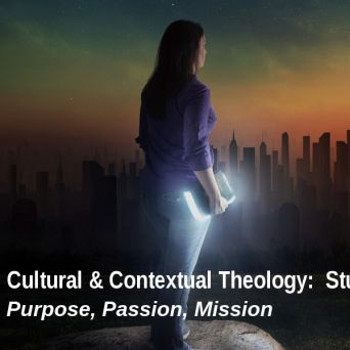
The Department of Cultural & Contextual Theology in the School of Theological Studies builds on the foundation of biblical studies and endeavors to understand, develop, and apply the missio dei in and to particular historical, cultural contexts, and culture itself. Graduates will learn how the transcultural gospel has been communicated and understood in diverse contexts, and will be equipped to fulfill their missional calling in specific contexts.
The Department of Environmental & Scientific Theology in the School of Theological Studies builds on the foundation of biblical studies to develop a theology of creation, including its value to God, purpose, relationship to humans and eschatological future. Humans are intimately bound up with the rest of creation. We have been charged with its care, but failed to do so. Non-human creation and human civilisation is under threat. Ecotheology takes seriously human role and responsibility, our failure, and God's concern for all he has made. The department challenges students to consider God's redemptive plan as inclusive of all of creation, and to combine a scientific understanding of the issues with a biblically informed world view. Students will be equipped to engage creatively in holistic mission that reconciles people with God, each other, and the non-human creation.
